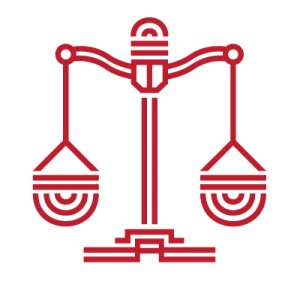Best Restructuring & Insolvency Lawyers in Midrand
Share your needs with us, get contacted by law firms.
Free. Takes 2 min.
List of the best lawyers in Midrand, South Africa
South Africa Restructuring & Insolvency Legal Articles
Browse our 2 legal articles about Restructuring & Insolvency in South Africa written by expert lawyers.
- Cross-Border Insolvency: Protecting Assets in South Africa
- Legal Framework: South Africa governs cross-border insolvency through the Cross-Border Insolvency Act 42 of 2000, which incorporates the UNCITRAL Model Law. Mandatory Recognition: Foreign liquidators or "representatives" have no standing to deal with South African assets until they obtain a formal recognition order from a South African High Court. COMI... Read more →
- Business Rescue Proceedings in South Africa for Directors
- Business rescue is a formal rehabilitation process designed to save "financially distressed" companies from liquidation. A general moratorium is triggered immediately, providing legal protection against creditor claims and asset seizures. The Business Rescue Practitioner (BRP) takes full management control of the company, effectively displacing the board's autonomous authority. Directors face... Read more →
About Restructuring & Insolvency Law in Midrand, South Africa
Restructuring and insolvency law in Midrand, South Africa, is a critical area of the legal system that helps individuals and businesses facing financial distress. Set in a rapidly developing commercial hub between Johannesburg and Pretoria, Midrand’s economic landscape means that both established corporations and small businesses often navigate periods of financial challenge. Restructuring allows for business rescue or reorganization, so companies can recover and avoid liquidation. Insolvency law manages situations where liabilities outweigh assets, potentially leading to sequestration for individuals or winding up for companies. These processes are governed by South African national legislation but have unique applications and procedures influenced by the local economy and courts in Midrand.
Why You May Need a Lawyer
There are several common scenarios where individuals or businesses in Midrand may require legal assistance with restructuring and insolvency:
- You are a business owner facing cash flow problems or financial instability.
- Your company is unable to pay its debts or needs to negotiate with creditors.
- You want to explore business rescue as an alternative to liquidation.
- You are an individual with overwhelming personal debts, considering voluntary sequestration.
- A creditor has initiated liquidation or sequestration proceedings against you or your company.
- You need advice about the legal obligations of directors or officers during financial distress.
- You are a creditor attempting to recover debts from insolvent parties.
Lawyers in this field can guide you through negotiations, court applications, compliance with local processes, and protect your legal rights throughout the restructuring or insolvency process.
Local Laws Overview
The main legal framework for restructuring and insolvency in Midrand comes from the national statutes, including the Companies Act 71 of 2008 (specifically the provisions on business rescue) and the Insolvency Act 24 of 1936, as well as the Companies Act 61 of 1973 for some liquidation procedures.
Key aspects include:
- Business Rescue Proceedings: Designed for financially distressed companies, business rescue allows companies to reorganize and potentially return to solvency under a court-appointed practitioner.
- Liquidation: The formal process for closing down a company with debts it cannot pay, typically resulting in asset sales to pay creditors.
- Sequestration: A legal process whereby a court declares an individual insolvent and places their estate under the administration of a trustee.
- Creditor Claims: Processes for creditors to prove their claims in insolvency or liquidation scenarios.
- Director and Officer Responsibilities: Importantly, directors must act in the best interest of creditors once a company is financially distressed.
Local courts in Midrand handle applications for business rescue, liquidation, and sequestration, and lawyers familiar with regional processes can help you navigate these effectively.
Frequently Asked Questions
What is the difference between business rescue and liquidation?
Business rescue aims to rehabilitate a financially distressed company, allowing it to continue operating while restructuring its affairs. Liquidation, on the other hand, involves closing down the company and selling its assets to pay off creditors.
Can individuals apply for bankruptcy in South Africa?
In South Africa, individuals do not declare bankruptcy but may apply for sequestration if they are insolvent. This process places their estate in the hands of a trustee who administers the assets to pay creditors.
How do I know if my company is financially distressed?
Your company is considered financially distressed if it appears it will be unable to pay its debts in the next six months or has already defaulted on payments. A legal review or professional assessment can help clarify your company's financial status.
What are the consequences of liquidation for business owners?
Once a company is liquidated, all business operations cease, assets are sold to pay creditors, and the company is eventually deregistered. Directors may be investigated for any wrongful trading or negligence.
Can creditors force a company or individual into liquidation or sequestration?
Yes, creditors can petition the court to liquidate a company or sequestrate an individual if debts are unpaid and there is evidence of insolvency.
What is the role of a business rescue practitioner?
A business rescue practitioner is appointed to assess the company’s affairs, develop and implement a business rescue plan, and manage the process for the benefit of creditors and stakeholders.
Will restructuring or insolvency affect my credit record?
Yes, sequestration and liquidation both negatively impact personal or company credit histories, limiting future access to loans or credit facilities.
Are directors personally liable for company debts in insolvency?
Generally, directors are not personally liable, but if they acted recklessly or fraudulently, they could face civil or criminal penalties and be held jointly liable for certain debts.
How long does a business rescue or liquidation process take?
The timeline varies based on complexity. Business rescue typically takes three to six months but can be extended. Liquidation can take several months or years, depending on asset sales and disputes.
What steps should I take if I suspect my business is insolvent?
Seek immediate legal advice to assess your financial position, understand your options, and ensure compliance with director’s duties under South African law.
Additional Resources
If you are dealing with restructuring or insolvency in Midrand, you may find the following organisations and bodies helpful:
- South African Department of Justice and Constitutional Development (for legal processes and forms)
- Companies and Intellectual Property Commission, also known as CIPC (for business rescue and company information)
- South African Revenue Service, also known as SARS (for tax matters related to insolvency)
- The National Credit Regulator (for consumer credit issues and debt counselling)
- Law Society of South Africa (to help find legal professionals specialising in insolvency law)
Next Steps
If you suspect you or your business may be facing financial difficulties or are already in crisis, early action is critical. Here are steps you can follow:
- Gather all relevant financial records, contracts, correspondence, and any legal documents.
- Contact a legal professional in Midrand who specialises in restructuring and insolvency law for a consultation.
- Discuss your specific situation and potential solutions, such as business rescue, restructuring, or insolvency options.
- Follow your lawyer’s advice on communicating with creditors, employees, and other stakeholders.
- Stay informed about your rights and obligations throughout the process.
Taking timely legal advice can make all the difference in protecting your interests and maximizing your chances of recovery, whether you are an individual or a business in Midrand, South Africa.
Lawzana helps you find the best lawyers and law firms in Midrand through a curated and pre-screened list of qualified legal professionals. Our platform offers rankings and detailed profiles of attorneys and law firms, allowing you to compare based on practice areas, including Restructuring & Insolvency, experience, and client feedback.
Each profile includes a description of the firm's areas of practice, client reviews, team members and partners, year of establishment, spoken languages, office locations, contact information, social media presence, and any published articles or resources. Most firms on our platform speak English and are experienced in both local and international legal matters.
Get a quote from top-rated law firms in Midrand, South Africa — quickly, securely, and without unnecessary hassle.
Disclaimer:
The information provided on this page is for general informational purposes only and does not constitute legal advice. While we strive to ensure the accuracy and relevance of the content, legal information may change over time, and interpretations of the law can vary. You should always consult with a qualified legal professional for advice specific to your situation.
We disclaim all liability for actions taken or not taken based on the content of this page. If you believe any information is incorrect or outdated, please contact us, and we will review and update it where appropriate.











